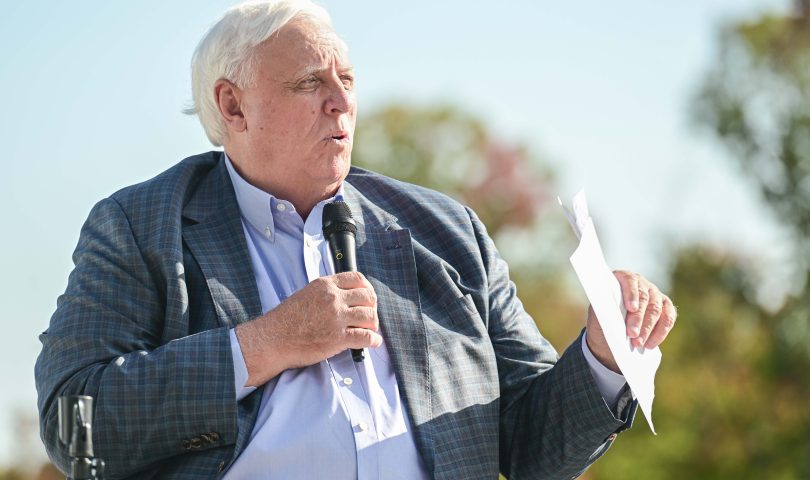Lawmakers resolved a staredown over details of a bill to bolster financial support for disabled people.
A special session finally concluded on its third day Tuesday with passage of a bill meant to improve the level of state funding for intellectual and developmental disabilities waivers, commonly called IDD waivers.
Gov. Jim Justice called the special session after expressing frustration that the regular legislative session had concluded with “a dog’s mess” — funding levels for human services programs that the governor said were far less than adequate.
The special session allocation provided a little more than $5 million to the state Department of Health and $183,437,463 to the Department of Human Services in a new reserve funds that can be accessed by the agency secretaries when or if the money is needed.
The state Senate and House of Delegates both agreed with that overall need.
But they disagreed over the need for an oversight provision advocated by delegates.
Delegates backed an amendment by House Health Chairwoman Amy Summers, R-Taylor, to require increasing the low reimbursement rates for companies and their employees providing services for people with disabilities.
Lawmakers have become alarmed by low reimbursement rates that have resulted in uncompetitive wages for workers — less than $14 an hour — and then a challenging environment to retain them.
That particular matter resulted in a volley between the chambers. The House on Monday night stood its ground on the reimbursement rate provision and refused to accept a Senate version without it.
“Our vote was to send a message solely that we wanted to make sure the money was spent where we intended: Let’s make sure the money is being spent the way our constituents expected it to be spent,” said Delegate J.B. Akers, R-Kanawha. His view was that if the House and Senate had additional communication — or a conference committee — the policy point could be worked out.
“If the Senate had come back and said to the House here is the reason we can’t do it the way you want and communicated to us and explained it to us, I can’t imagine we would have said no,” Akers said.
Instead, the Senate gaveled in shortly after noon Tuesday, met for about five minutes, did not take up the House version of the bill and adjourned sine die.
That left the bill stranded — unless delegates would decide to unwind their actions from the prior day and accept the Senate version.
That’s what wound up happening, but senators were prepared to blame the House if the bill died.
Senate President Craig Blair, Senate Finance Chairman Tom Takubo and Senate Majority Leader Tom Takubo spoke to reporters after the adjournment and said that chamber had done its job.
“The position the House is in now, they need to recede from what they did yesterday or the bill is dead,” said Tarr, R-Putnam.
A few minutes later, delegates reconvened. They expressed frustration with the status of the bill, the process and their Senate colleagues — but speaker after speaker rose to say it would be better to back off the House’s prior position and make sure the money would at least be available to help people with disabilities.
“While this isn’t the best path forward, I think it’s the path we need to take,” said Summers.
In the end, delegates voted 87-2 to pass the bill as-is. “I voted yes because I didn’t want additional people to suffer,” Summers said after the vote.
Delegate Michael Hite, R-Berkeley, agreed. He said lawmakers would just have to pressure state agencies to increase the reimbursement rates for providers.
“This is not what we wanted. This is not what we voted on. This is what we have. We shouldn’t have to hope that they do the right thing, but that’s what we have,” Hite said.
Delegate Mike Pushkin, D-Kanawha, had listened to senators as they spoke. He remained frustrated, but also wound up voting for the bill as it had come from the Senate.
“I’m completely disappointed and disgusted in the lack of action from the West Virginia Senate,” he said in the hallway just prior to the House reconvening. “We’re talking about people who have family and loved ones with intellectual and developmental disabilities. They need a little extra help. They need help in their homes.
“The House bill was bipartisan. Last night, Republicans and Democrats stood together in the House to protect those funds to make sure those funds went where they were supposed to go and it would be used for a rate increase, so we’re able to get enough direct care workers into people’s homes. The Senate didn’t seem to care about that.”




